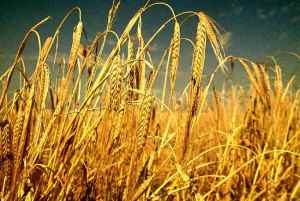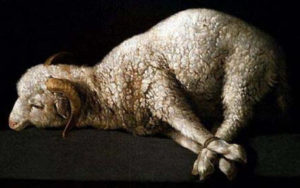As stated in a previous article, my family has decided to celebrate the all seven appointed times and feasts of YHVH this year for the first time. I wanted to take some time to briefly share what we have learned so far.
Accuracy:
This year, one concept I have learned is the importance of accuracy when studying, understanding, and practicing the Word. Here is how…
In order to celebrate, practice, or observe the spring feasts and holy days, you have to understand YHVH’s calendar. As the creator of time, YHVH designed His own calendar through which He shows Himself. He began by defining the day. Throughout Genesis, He shows us when a day begins and when it ends.
God called the light Day, and the darkness he called Night. And there was evening and there was morning, the first day. Genesis 1:5
There was purpose in the creation of the sun, moon, and stars that goes beyond the provision of light, gravity, and seasons.
… And let them be for signs and for seasons, and for days and years Genesis 1:14
Of course the sun tells us the beginning and ending of each day, but what tells us the beginning and ending of each month? The moon.
On the third new moon after the people of Israel had gone out of the land of Egypt, on that day they came into the wilderness of Sinai. Exodus 19:1
This month shall be for you the beginning of months. It shall be the first month of the year for you. Exodus 12:2
In this scripture, the Hebrew word chodesh is translated as month, but the literal translation of chodesh is new moon. As you read throughout scripture, you will see that the new moon always points to a new month.
We see YHVH’s appointment of the day and the month, but what about the year? As we just saw in Exodus 12:2, YHVH appointed a certain month to be the beginning of months or the first month of the year. What is this month?
Today, in the month of Abib (actual Hebrew word is aviv), you are going out. Exodus 13:4
What is this month Aviv? We get a huge hint a few chapters earlier.
(The flax and the barley were struck down, for the barley was in the ear and the flax was in bud. Exodus 9:31
The barley was “in the ear.” The Hebrew word aviv is translated as in the ear. This Hebrew word is an agricultural term to describe what the barley looked like or how ripe it was. Through this, we know the new year is determined by two things – the new month (moon), and the state of the barley.
Why is all of this important? In the very first month of the year, there are two feasts and an offering (appointed time) to be observed – Passover, Unleavened Bread, and First Fruits. In order to offer the first fruits, you must have “fruits.” The first fruits to ripen every year was the barley. For this reason, it is important that the first month of the year falls when the barley is aviv.
This is where accuracy comes in. If you mess up the first month of the year and the first day of the month, then you mess up the spring feasts and the offering observed in the first month. Not only are you unable to correctly observe these, but every month and feast for the rest of the year will be wrong.
Compare this to the rest of YHVH’s Word. If you get one truth wrong, it will affect more truth down the road. It is like a landslide. An example that I have seen time and again is the definition of faith. Many believe it to be something that we speak with our mouths to get the things we want. If we believe this, it affects the truths of the character of YHVH, how we should treat Him, and His importance. (For more information on faith, see Real Faith) Like a snowball rolling downhill, the misconceptions build until we are no longer worshiping YHVH, the God of Abraham, Isaac, and Jacob; but instead are worshiping another god that we have made up. When we do things like procrastinate in trying to understand something that may be difficult, or place certain teachings as less important than others, we are in danger of misunderstanding or misinterpreting other teachings along the way.
(I recommend a thorough study on the calendar and times of God. What defines the beginning of a day, month, or year? Why should we understand this? How does this apply to us, the Word, or even end time prophecies?)
Creation points to YHVH:
Through YHVH’s timing, we can see that all creation points to Him. When we consider the spring feasts and holy days along with the first month of the year, and see how perfectly it all lines up with the seasons, we can see how YHVH created the world to be ready for His timing. As spring comes in, so does everything that is necessary for the spring feasts. Baby lambs are being born, barley shoots up and ripens very quickly, and the weather supports all of this.
All of this points to a God that has everything under control. A system that is so perfect that it can only be by creative design. A God that not only tells us how to serve Him, but makes it possible. Once this has been seen, it is hard to deny that YHVH has set his feasts in His own timing, and that He wants them to be kept forever.
For his invisible attributes, namely, his eternal power and divine nature, have been clearly perceived, ever since the creation of the world, in the things that have been made. So they are without excuse. Romans 1:20
The heavens declare the glory of God, and the sky above proclaims his handiwork. Day to day pours out speech,and night to night reveals knowledge. Psalms 19:1-2
Freedom in Obedience:
While under bondage, the children of Israel were not able to obey YHVH in the specific ways He requires. This is evident through entire conflict between YHVH and Pharaoh. YHVH required a sacrifice from them. Pharaoh and all of Egypt could not agree to this for several reasons, but the biggest reason had to do with the sacrifice that YHVH required. He required that a lamb be sacrificed to Him. The problem in this was that the Egyptians worshiped sheep. If the children of Israel killed the Egyptian gods, they would pay for it with their lives.
Then Pharaoh called Moses and Aaron and said, “Go, sacrifice to your God within the land.” But Moses said, “It would not be right to do so, for the offerings we shall sacrifice to the LORD our God are an abomination to the Egyptians. If we sacrifice offerings abominable to the Egyptians before their eyes, will they not stone us? Exodus 8:25-26
As long as the children of Israel were slaves to Egypt, they would never be able to worship or serve YHVH in the way He requires. The same is true in our own lives. Egypt represents bondage to anything that is not YHVH also known as sin. You cannot be a slave to sin and at the same time be a servant to YHVH. Take a moment and let that sink in. If you are a slave to one master, are you able to make yourself a servant to somebody else and do all that is required of you? It is impossible!
Do you not know that if you present yourselves to anyone as obedient slaves, you are slaves of the one whom you obey, either of sin, which leads to death, or of obedience, which leads to righteousness? But thanks be to God, that you who were once slaves of sin have become obedient from the heart to the standard of teaching to which you were committed, and, having been set free from sin, have become slaves of righteousness. I am speaking in human terms, because of your natural limitations. For just as you once presented your members as slaves to impurity and to lawlessness leading to more lawlessness, so now present your members as slaves to righteousness leading to sanctification.
For when you were slaves of sin, you were free in regard to righteousness. But what fruit were you getting at that time from the things of which you are now ashamed? For the end of those things is death. But now that you have been set free from sin and have become slaves of God, the fruit you get leads to sanctification and its end, eternal life. Romans 6:16-22
Consider the thing you are a slave to. What keeps you from serving YHVH with everything you are? Food, drugs, alcoholism, love of money, debt, acceptance, appearances, stuff, etc.? There are so many possibilities…Wouldn’t you rather be free so that you can serve YHVH completely?
There have been so many other lessons that have come to life for us. I have listed some that I won’t be expounding on. I encourage you to celebrate God’s holy days and feasts and see what you learn that you weren’t able to grasp before. These are the missing links.
- What it means to keep the commandments.
- Leaven’s representation of sin.
- The purpose of the Passover Lamb.
- The blessings in obedience.
- The curses of disobedience.
Already, my family has learned so much through the celebration of YHVH’s spring feasts, and this is only the first year of celebration for us! This is The Reason we Feast.
(Please note that nothing has been mentioned about Pentecost/Shavuot. Pentecost occurs 50 days after First Fruits. Expect more on this subject later.)


